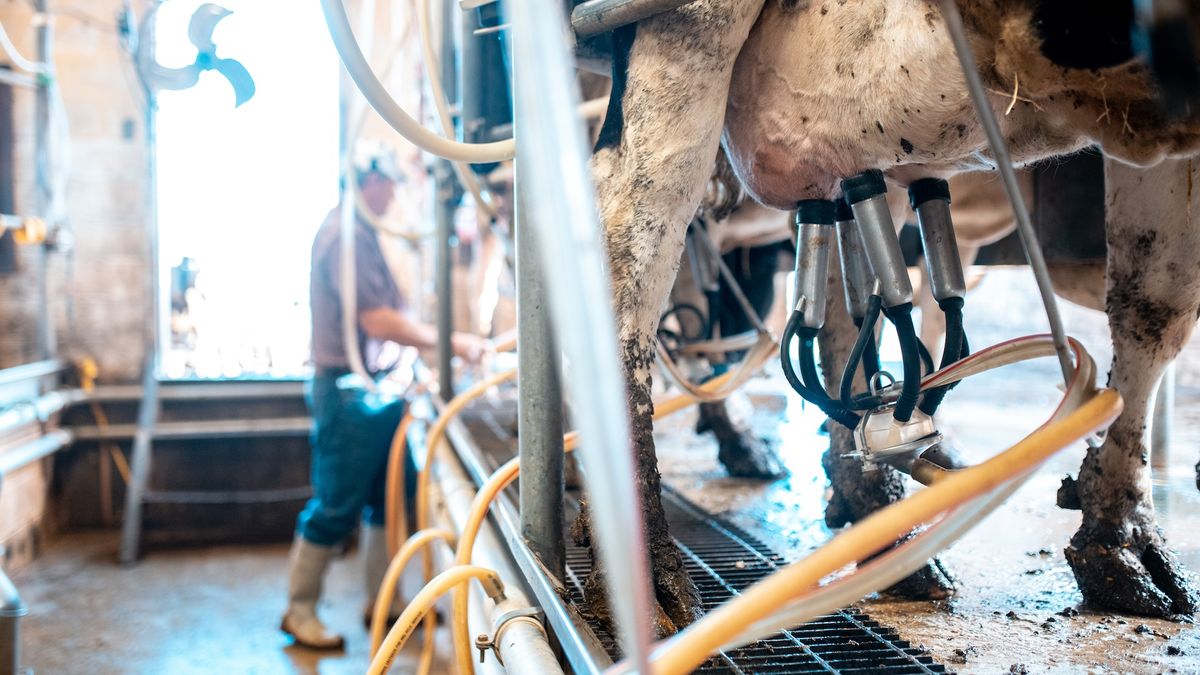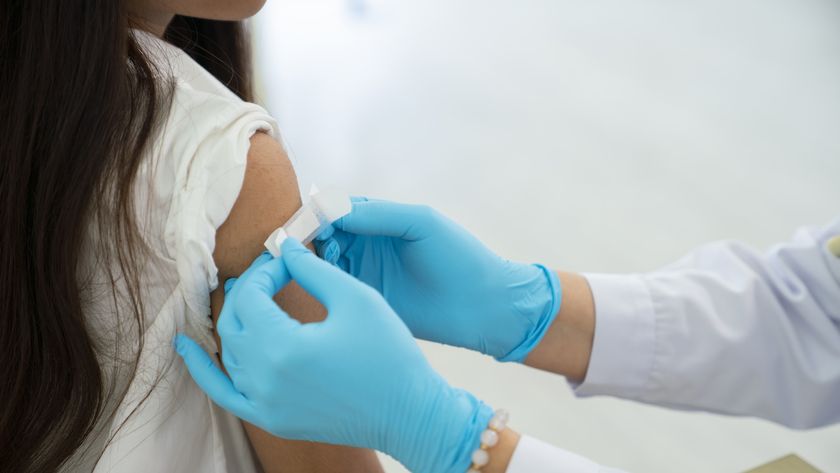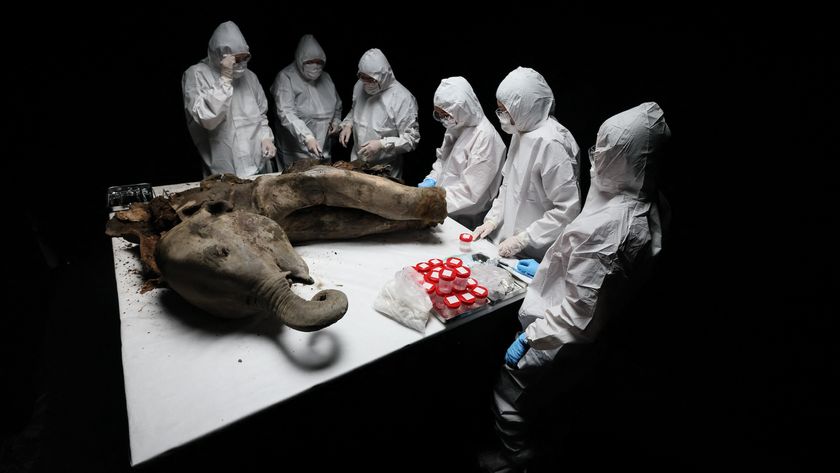Raw milk from US dairies must now be tested for bird flu
A new federal order requires that U.S. dairies provide milk samples to the USDA so the agency can test the milk for bird flu prior to pasteurization.

U.S. dairies must now send samples of raw milk to the U.S. Department of Agriculture (USDA) so the agency can test them for bird flu, per a new federal order.
The move, announced Friday (Dec. 6), builds upon existing efforts by the USDA and other authorities to track the spread of bird flu in dairy herds around the country. As of Dec. 5, H5N1 — a subtype of bird flu — has been detected in 720 dairy herds in the U.S. this year.
At least 35 people have contracted bird flu as a result of working around infected cows. That's in addition to 21 people who became infected through exposure to sick birds, and an additional two cases whose infection sources are unknown.
Earlier in the outbreak, the USDA mandated that any lactating cows being shipped across state lines first be tested for H5N1 and that any positive tests be reported to the agency. It also launched a voluntary Dairy Herd Status Program, which dairy producers could join to monitor for infections via weekly bulk milk samples. But as of December, only 75 herds across 17 states were being tracked through the program.
Now, with the federal order, bulk milk testing will be mandated nationwide.
Related: Bird flu could become deadlier if it mixes with seasonal flu viruses, experts warn
"This new milk testing strategy will build on those steps to date and will provide a roadmap for states to protect the health of their dairy herds," Agriculture Secretary Tom Vilsack said in the USDA announcement.
Sign up for the Live Science daily newsletter now
Get the world’s most fascinating discoveries delivered straight to your inbox.
"Among many outcomes, this will give farmers and farmworkers better confidence in the safety of their animals and ability to protect themselves," he said, "and it will put us on a path to quickly controlling and stopping the virus' spread nationwide."
Specifically, the order mandates that, upon request, any entity that sends or holds milk intended for pasteurization submit samples to the USDA. It also requires that herd owners with cows that test positive provide information to help the USDA track the spread of disease among the cattle. Finally, it requires private laboratories and state veterinarians to report to the USDA any raw milk samples that test positive for bird flu.
The main motivation behind the order is to help authorities determine the scope of the outbreak and track its spread. Where needed, "enhanced biosecurity measures" can then be implemented to help prevent the spread to additional cows, the USDA noted. The enhanced surveillance could also inform strategies to help guard farmworkers from the infection.
As of yet, there's no evidence that H5N1 is spreading from person to person; so far, people have only caught the virus from animals. However, a study released Thursday (Dec. 5) highlighted just how little the virus would have to evolve to start spreading between people.
A single mutation affecting one of the virus's key proteins could make it a "match" for human cells, setting up a key domino whose toppling could lead to a pandemic.
"The more people that get infected, the more likelihood is that … that mutation will get selected for," Ian Wilson, a structural biologist at the Scripps Research Institute and one of the study's authors, previously told Live Science.
The new testing plan rollout will start Dec. 16, initially in California, Colorado, Michigan, Mississippi, Pennsylvania and Oregon, according to Reuters.
Tracking bird flu will help authorities ensure that the commercial milk supply remains safe, the USDA statement notes. Importantly, though, the commercial milk supply is already pasteurized — heated to kill germs — so any H5N1 that might be in the milk is neutralized before it is sold. Several studies have confirmed that pasteurization inactivates the virus.
However, health authorities do warn against consuming products made with unpasteurized, or "raw," milk, which could pose a risk of infection if they're contaminated with H5N1. Recently, the California-based dairy company Raw Farm issued a recall after its products tested positive for the virus. Consuming raw milk also carries a risk of contracting other serious infections.
Disclaimer
This article is for informational purposes only and is not meant to offer medical advice.
Ever wonder why some people build muscle more easily than others or why freckles come out in the sun? Send us your questions about how the human body works to community@livescience.com with the subject line "Health Desk Q," and you may see your question answered on the website!

Nicoletta Lanese is the health channel editor at Live Science and was previously a news editor and staff writer at the site. She holds a graduate certificate in science communication from UC Santa Cruz and degrees in neuroscience and dance from the University of Florida. Her work has appeared in The Scientist, Science News, the Mercury News, Mongabay and Stanford Medicine Magazine, among other outlets. Based in NYC, she also remains heavily involved in dance and performs in local choreographers' work.











